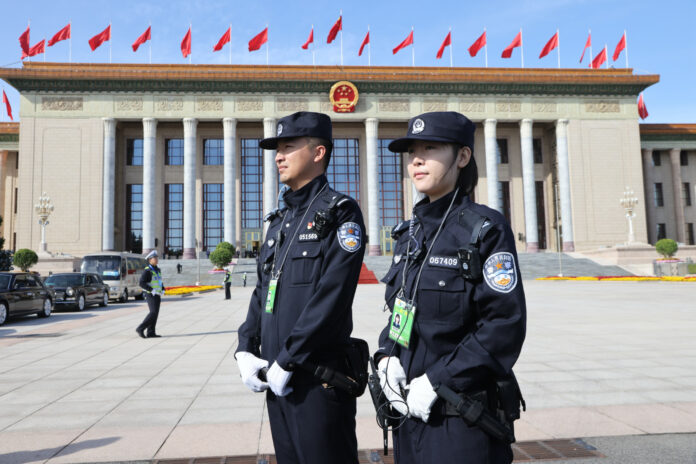The government of Thailand this week swiftly walked back a proposal to allow Chinese police to patrol some of its most-popular tourist hotspots amid renewed concerns about the reach of Beijing’s law-enforcement arm overseas.
Opponents of the plan—initially announced over the weekend by the country’s tourism authority—included Thai police chief Gen. Torsak Sukwimol, who cautioned against an intrusion of Thailand’s sovereignty. The Thai and Chinese foreign ministries couldn’t be reached for comment before publication.
Chinese police officers have taken part in joint patrols in Europe in the past in the name of safeguarding its large number of travelers overseas. However, the police presence, which included a contact point in New York City, came under intense scrutiny in the West last year.
News of likely cooperation with China’s public security forces came from the director of the Tourism Authority of Thailand, Thapanee Kiatphaibool. She said she had floated the plan during a meeting with Prime Minister Srettha Thavisin of Thailand, according to The Nation, an English-language newspaper.
“It is necessary to have Chinese police in Thailand because it will help us show Chinese tourists that Thailand is enhancing its security measures. Also, traveler confidence will be boosted if their police officers can confirm that Thailand is safe,” Thapanee said, a direct reference to the deployment of Chinese officers on the ground.
Bangkok’s goal is to host up to 4.4 million Chinese tourists by the end of this year, up from the current 2.8 million, according to the government’s latest figures.
However, Torsak, Thailand’s top policing official, dismissed the idea outright and denied that his officers had ever sought the help of their Chinese counterparts.
“I disagree with the idea as it would infringe upon Thailand’s sovereignty,” the official said on Monday, according to Thai PBS, the country’s public broadcaster. “Thai police are quite capable of taking care of Thai people as well as tourists.”
By Tuesday, a public outcry had caused a quick reversal of the government’s thinking. Srettha, who is attending the APEC [Asia-Pacific Economic Cooperation] summit in San Francisco, called the controversy a result of miscommunication.
Thailand plans to cooperate with China on the exchange of information related to criminal networks, Srettha said.
Chai Watcharong, a Thai government spokesperson who is part of the prime minister’s entourage in the United States, added that Chinese police officers would act as liaisons instead.
“Chinese criminals don’t fear Thai cops but their own state police. Chinese tourists feel more assured if their Chinese police could help take care of them if they are harassed by Chinese criminals,” Radio Free Asia quoted Chai as saying.
“The Chinese police will not go on patrol but feed information. It has nothing to do with sovereignty but what is most beneficial for the country,” Chai said.
Thailand’s tourism industry—a key driver of economic growth—has suffered from a drop in Chinese visitors since the COVID-19 pandemic. In September, Bangkok announced a partial visa waiver for Chinese travelers in a bid to boost the numbers.
GETTY IMAGES
Before Srettha’s government walked back the proposal, the Global Times, a state-run Chinese newspaper, praised the initiative on Monday, saying it would “undoubtedly be a deterrence for criminals.”
The paper said Chinese arrivals in the Southeast Asian nation had slowed since a deadly mall shooting in Bangkok in early October claimed the life of a Chinese national.
In August, a report by the U.N. Human Rights Office said that hundreds of thousands of people were being kidnapped, tortured and put into forced labor by criminal gangs in Southeast Asia.
China’s police presence in foreign countries exists in a relative legal gray area and comes in the form of service stations that connect back to public security bureaus in Chinese cities and counties.
The Chinese government denies the contact points serve any sinister purpose, but rights groups say the locations help facilitate Beijing’s hunt for dissidents and other would-be political criminals in other countries.
Safeguard Defenders, a Spain-based nonprofit whose research in 2022 highlighted the practice, identified stations in dozens of countries, including 11 in Italy, where Chinese police conducted joint patrols with Italian officers from 2016 to 2019, Rome said.
Last December, the Italian government said the joint patrols were suspended during the pandemic and would be scrapped altogether amid international scrutiny.
Uncommon Knowledge
Newsweek is committed to challenging conventional wisdom and finding connections in the search for common ground.
Newsweek is committed to challenging conventional wisdom and finding connections in the search for common ground.


